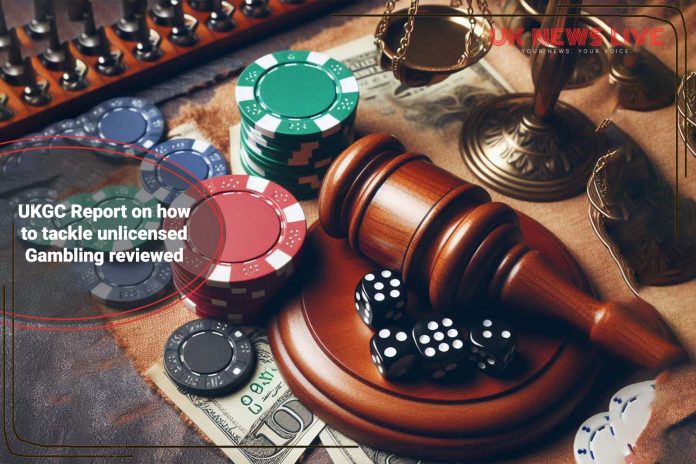Online gambling is a huge point of contention in many countries and markets all over the world. Some areas of the world—mostly due to religious reasons—have even fully banned online gambling as something immoral or dangerous.
One thing that many lawmakers around the globe agree on is that so-called illegal gambling should be dealt with.
In markets like the UK, there is an effort to channel all gambling efforts to state-licensed online casinos that come with the United Kingdom Gambling Commission seal of approval.
In this article, we take a look at what methods the UKGC is reportedly using in order to tackle unlicensed gambling.
UKGC is one of the strictest Gambling Authorities in the World

While every legal gambling market out there has at least some kind of an overseeing authority tasked with regulation, the UKGC has become known for being one of the strictest ones.
For instance, the UKGC prohibits licensed online casinos from marketing their services with ads where people in them look like they are less than 30 years old. This way, the regulator is taking an aggressive stance against any implications of underage gambling.
The UKGC is also known for its relatively long licensing queues as well as detailed forms that need to be filled out in order to apply for wagering. This way, the regulator hopes to separate the chaff from the wheat and to keep things as safe and orderly as humanly possible.
UKGC’s measures for keeping bad Actors at Bay
Recently, on the 21st of October 2024, the UKGC’s chief executive Andrew Rhodes shared some details on the UKGC website about the regulator’s approach to tackling unlicensed gambling.
In a long article, the UKGC noted that tackling unlicensed gambling was central to the regulator’s objective of preventing gambling from being a source of crime. Therefore, the UGKC’s so-called Corporate Strategy has been created with securing the necessary funds and resources for these activities in mind.
The UKGC claims that the illegal market poses risks to consumers, especially those that are most vulnerable. This is likely a reference to the fact that unlicensed markets often come with less emphasis on responsible gambling, which means those struggling with gambling problems may end up losing vast amounts of money to operators with less of a conscience.
Below are some of the ways of attack that the article mentions:
- Getting URLs removed from online search engines’ search results
- Choking off payments
- Stopping games and products from being accessible on illegal sites
- Collaborating with regulators, operators, payment providers, and internet search providers
Doing all of this, the UKGC reports that in the past 6 to 7 months, its team had issued more than 750 Cease and Desist and disruption notices. 259 of these had been issued to operators, while 189 had been sent to advertisers. In addition to this, the regulator had referred more than 78,000 URLs to Google, resulting in the removal of 50,000 of them and as many as 255 websites being taken down. According to the article, this marked a tenfold increase in takedowns from the previous calendar year.
Unlicensed Gambling in other reference Markets

Other gambling authorities are known to take similar actions as the ones that the UKGC does. In one huge market, Finland, the government is about to begin its own regulation process in 2026 or 2027. This includes creating a license unique to only Finnish online casinos. Thus far, Finns have been able to legally play anywhere online with tax-free casinos at verovapaatnettikasinot.net/ being majorly successful. However, after the new system takes place, more regulations could be put forward to ensure that money stays within Finnish borders.
Technically, online casinos within the EU cannot be blamed for breaking the law by allowing players from regulated markets to participate. Even so, governments can implement changes where access to such sites from within their borders can be made more difficult.
Naturally, every market has its own politicians and law markets, which makes every market unique.
Conclusion
The UKGC and other similar gaming authorities are doing their best to help players as well as their associated governments to not lose out on too much money. However, in the end, it is always the customer’s responsibility to choose what they think is best for them. Jumping the fence will likely always be possible, no matter how strict the parameters end up being.
































